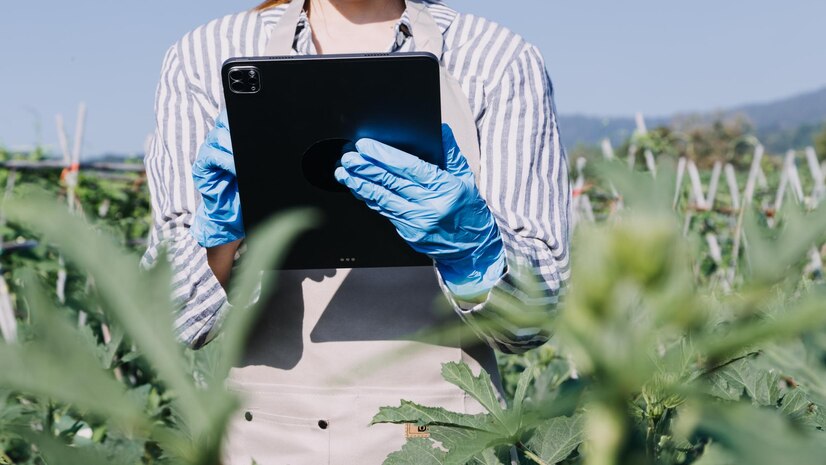Plant diseases pose a serious threat to agricultural productivity, leading to massive financial losses and food insecurity. In the United States, farmers are increasingly turning to artificial intelligence (AI) to detect plant diseases early, allowing for quicker interventions and reduced crop damage. With South Africa’s agricultural sector facing similar challenges, AI-powered disease detection could be a game-changer for improving food security and sustainability.
How AI is Helping US Farmers Detect Plant Diseases
AI-driven solutions are transforming how American farmers identify and manage plant diseases:
- Image Recognition Technology – AI-powered apps and drones use computer vision to analyze images of crops, detecting signs of disease such as discoloration, wilting, or unusual patterns on leaves.
- Machine Learning for Early Detection – AI algorithms process large datasets from farms, identifying disease outbreaks before they spread. This allows for targeted treatments and minimizes chemical use.
- Automated Drones and Robots – US farms deploy drones and robotic systems equipped with AI to scan vast fields and diagnose plant health in real time.
- AI-Powered Mobile Apps – Farmers use smartphone applications like Plantix and Agrosmart AI to take photos of their crops, which are then analyzed to diagnose diseases and suggest solutions.
- Climate and Soil Data Integration – AI systems analyze environmental factors such as temperature, humidity, and soil health to predict disease risks before symptoms appear.
Why South Africa Needs AI for Plant Disease Detection
South Africa’s agricultural sector faces major challenges, including climate change, drought, and pest outbreaks. AI-powered disease detection can offer the following benefits:
- Early Disease Identification – AI can help SA farmers detect diseases like maize streak virus, rust, and fungal infections before they spread, saving crops.
- Reducing Chemical Use – By targeting only affected plants, AI can help reduce excessive pesticide and fungicide applications, lowering costs and environmental impact.
- Supporting Small-Scale Farmers – Affordable AI-based mobile apps can empower smallholder farmers who lack access to expert agronomists.
- Improving Food Security – AI ensures healthier crops and higher yields, reducing the risk of food shortages.
Implementing AI in South African Agriculture
For AI-powered disease detection to thrive in South Africa, several steps are needed:
- Investment in AI Infrastructure – Government and private sector support can help bring AI tools to more farmers.
- Affordable and Accessible AI Apps – Developing local AI-powered mobile apps in multiple South African languages can boost adoption.
- Training Farmers in Digital Tools – Workshops and agricultural extension programs should educate farmers on using AI for disease detection.
- Collaboration with Tech Startups – Encouraging partnerships between tech companies and agricultural organizations can drive innovation in AI farming solutions.
The Future of AI in South African Farming
By adopting AI-driven disease detection, South Africa can follow the path of the US in creating a more resilient and efficient agricultural sector. With the right investments, training, and digital tools, AI has the potential to revolutionize South African farming, ensuring healthier crops, higher yields, and a more sustainable future.
Join 'Farmers Mag' WhatsApp Channel
Get the latest Farming news and tips delivered straight to your WhatsApp
CLICK HERE TO JOIN






